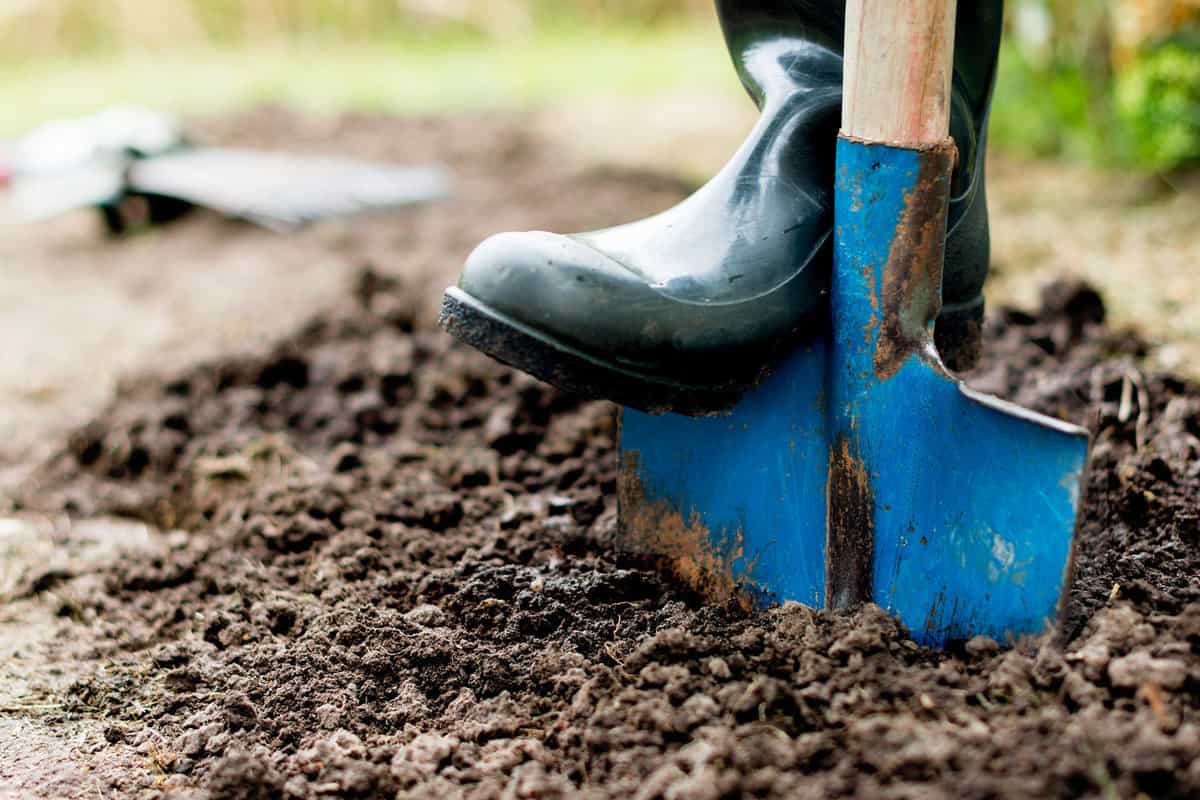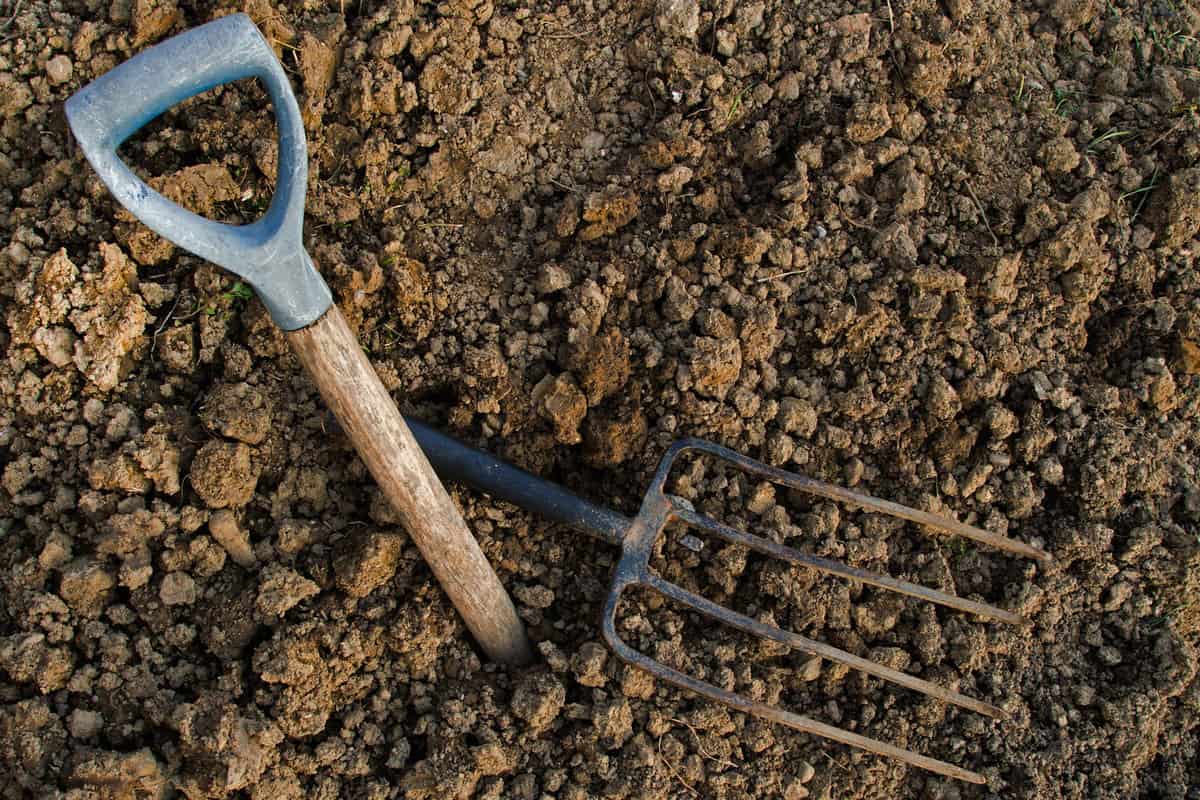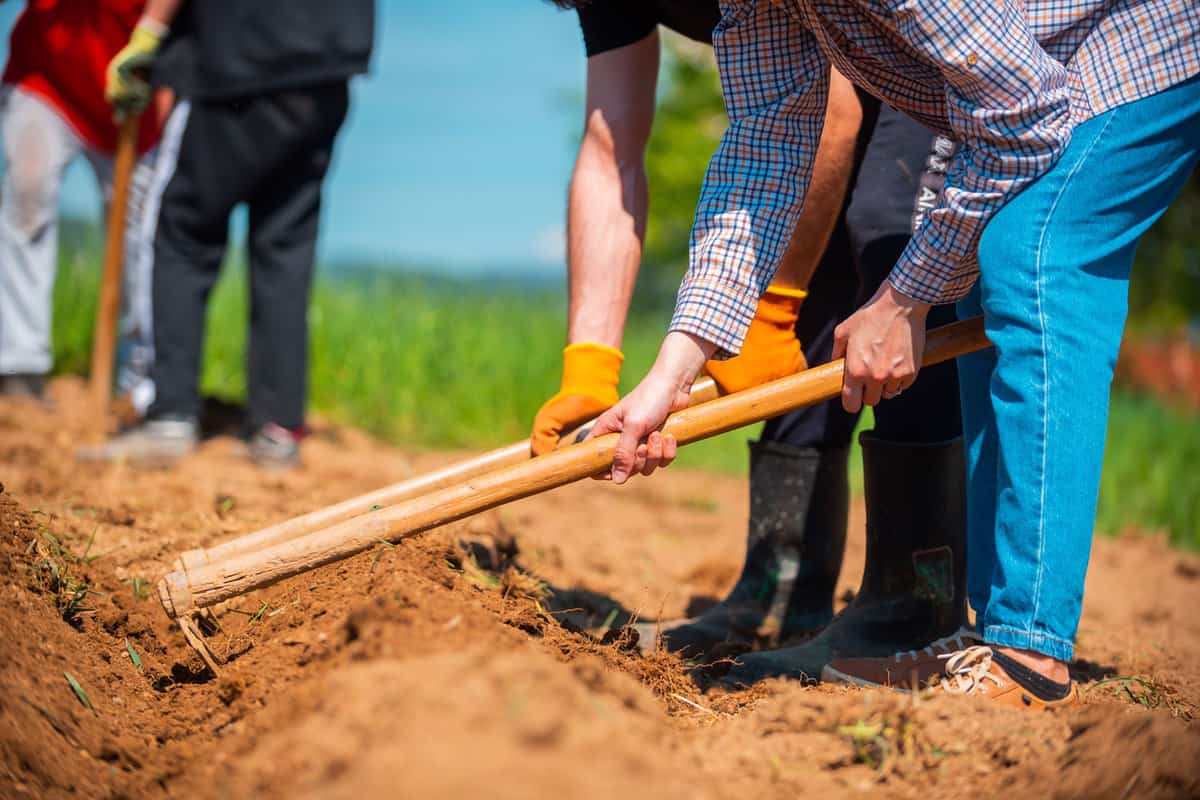Has your garden soil become unmanageably hard, and you're not sure what's causing the problem?
Don't worry! Soil compaction and hardness are common issues that many gardeners face.

Several factors could contribute to the hardness of your soil, such as clay content, over-watering, or improper soil management.
In this article, we will discuss some common problems that lead to hardening of garden soil.
We'll also explore effective remedies to soften your soil, ensuring your plants get the proper nutrients, water, and oxygen they need for optimal growth.
Understanding Soil Texture
A key factor in understanding the hardness of your garden soil is its texture.
Soil texture is determined by the relative proportions of sand, silt, and clay particles.
Ideally, your garden should have a balanced combination of these three types, known as a loam.
However, most garden soils are not perfectly balanced and may need adjustments to improve their texture and overall health.
To diagnose the reason behind your hard garden soil, let's first familiarize ourselves with the three main soil particles:
Sand
The largest and most coarse particle, which helps with drainage and aeration in your garden.
Silt
Intermediate-sized particles that provide a smooth, silky texture to your soil and help retain moisture.
Clay
The smallest and most fine-grained particles, which hold water and nutrients well, but can lead to hard, compacted soil if present in excess.
You can evaluate your soil texture by conducting a simple jar test, which will determine the percentages of sand, silt, and clay.
The test results will help you better understand the issue and inform potential remedies.
Soil pH Levels
Along with soil texture, another important aspect is your garden soil's pH level.
The ideal pH range for most plants is 6.0 to 7.5, as it provides the optimal nutrient availability.
Read more here: Why Soil pH Matters: Ensuring Your Garden’s Health and Success
However, some plants, such as blueberries and azaleas, may prefer more acidic soil.
If your soil is too alkaline or acidic, it can affect the breakdown of organic matter, making the soil hard and compact.
Now that you're more familiar with soil texture and pH, you can begin to identify the causes of your hard garden soil and explore potential remedies.
Check out this 4-in-1 soil pH, light, nutrient, and moisture meter on Amazon.
Why Is My Soil So Hard?
It can be frustrating to work with hard soil in your garden, but there are a few common reasons for this issue.
Compaction
One primary cause of hard soil is compaction, which occurs when the soil particles are pressed together, reducing the size and number of pore spaces.
This can lead to poor root growth and reduced nutrient availability for your plants.
Some common causes of soil compaction include walking or driving on the garden area, using heavy machinery, or working the soil when it's wet.
To remedy soil compaction, try using a garden fork to break up the compacted layers and aerate the soil.
Additionally, consider creating permanent walkways in your garden to prevent walking on planting areas, and avoid working the soil when it's wet.
Lack of Organic Matter
Another cause of hard soil is a lack of organic matter. Healthy soil has a good balance of organic materials, such as decomposed leaves or compost.
Organic matter, which includes materials like compost, aged manure, or leaf mold, provides essential nutrients and improves soil structure by encouraging the growth of beneficial microorganisms.

When soil lacks organic matter, the structure can become dense and difficult for plant roots to penetrate.
To improve the organic matter content in your garden soil, try incorporating compost or other organic materials into the soil. Add 2- to 4-inch layer of organic matter on top of your garden soil.
You can also use mulch to help retain moisture and slowly release nutrients over time.
Improper Watering
Improper watering can also contribute to hard soil in your garden.
Overwatering can lead to compaction, while underwatering can cause the soil to become hard and dry.
It's important to find the right balance for your specific plants and local climate.
To achieve proper watering, make sure to water deeply and less frequently, rather than shallow and daily.
This encourages the development of deep, healthy root systems and helps prevent soil compaction.
Additionally, using drip irrigation systems or soaker hoses can help deliver water directly to plant roots, reducing evaporation and increasing the efficiency of your watering efforts.
Hydrophobic Soil
Hydrophobic soil, which is soil that repels water rather than absorbing it, can also lead to hard and dry conditions.
This happens when the soil's particles become coated with organic materials that repel water, creating air pockets and leading to difficulty in rehydrating the soil.
To resolve this issue, you may need to use more drastic measures like submerging the entire pot or garden bed in water to force the rehydration process.
Preventing Soil Hardness In Future
A hard garden soil can negatively affect your plants' growth and make it challenging to work with.
To prevent soil hardness in the future, follow these friendly tips:
1. Add Organic Matter
Regularly adding organic materials such as compost, animal manure, and leaf mold can help improve soil structure.
This addition creates an environment for beneficial microorganisms to thrive and break down organic matter, which makes the soil more porous and easy to work with.
Keep track of the brown and green organic matter ratios for the best results.
2. Grow Cover Crops
Sow cover crop seeds in the fall, after harvesting your vegetables and removing weeds and plant debris.
This practice can improve soil structure, prevent erosion, and suppress weeds.
Be sure to turn cover crops under at least three weeks before planting in the spring to allow the organic matter to break down.
3. Avoid Soil Compaction
One of the main causes of soil hardness is compaction. To prevent this, avoid walking or using heavy machinery on wet soil, as it's more susceptible to being compressed.
Create permanent paths and garden beds to limit foot traffic on planting areas.
4. Proper Watering
Overwatering or underwatering can lead to soil hardness. Make sure to water your plants deeply and less frequently, allowing the soil to dry out between waterings.
This method encourages deeper root growth and prevents the soil surface from becoming too compacted.
5. Regular Soil Testing
To maintain healthy soil, it's essential to know its pH, nutrient levels, and texture.
Regular soil testing can provide valuable information about any adjustments needed for better soil quality.
It's particularly important if you're planting in an area for the first time or lack past treatment knowledge.
By following these tips, you can prevent soil hardness in your garden and enjoy healthier plants and easier gardening.
How Does Poor Soil Quality Affect Plant Growth?
Poor soil quality can have a significant impact on plant growth, limiting their ability to take up essential nutrients and water.

Hard soil makes it difficult for plant roots to penetrate and grow. As a result, your plants might struggle to establish a strong and healthy root system.
Weak root systems can lead to reduced water and nutrient uptake, resulting in stunted growth, and susceptibility to diseases and pests.
Ensure Healthy and Manageable Soil Quality
Ensuring your garden's soil is healthy and manageable can be the key to growing a bountiful space.
To improve the quality of your garden soil, consider adding compost, organic matter, or cover crops to increase the organic content of the soil.
Work on loosening the soil and breaking up compacted areas to promote better aeration and drainage.
Focusing on improving your garden's soil quality will ultimately lead to healthier and more productive plants.
By implementing these practices, you will be well on your way to improving your garden's soil conditions and establishing a thriving space for your plants to grow and flourish.
For more tips on soil improvement, check out these other articles:
Is Milk Good For Garden Soil? Investigating An Unconventional Fertilizer

